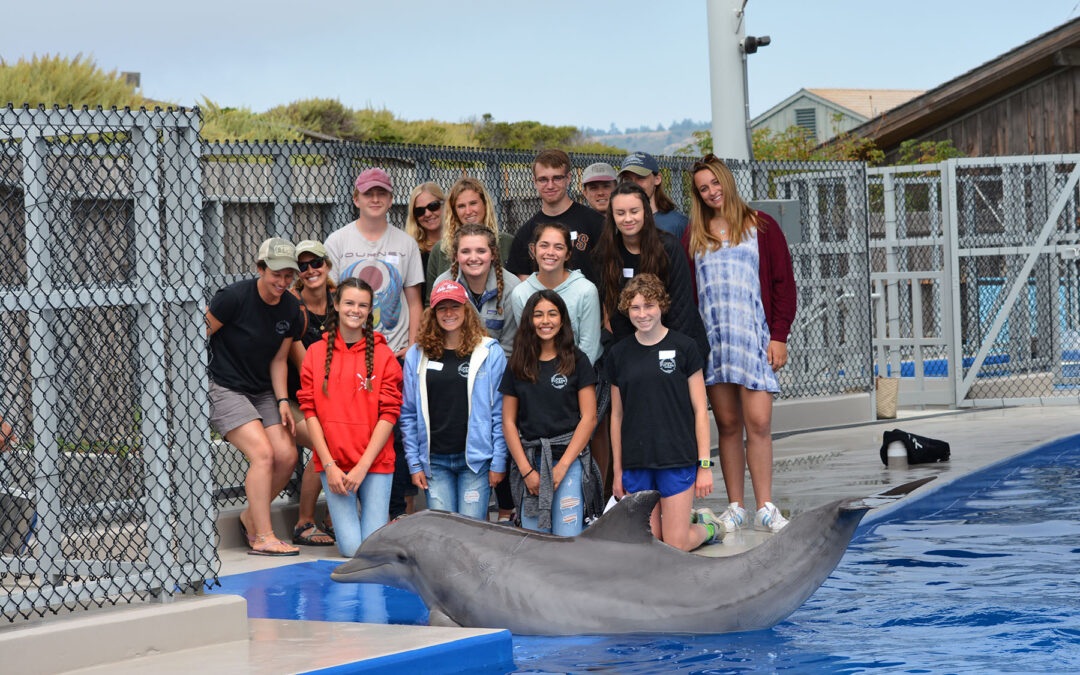We are saddened to announce that due to the COVID-19 epidemic COA will not be offering the 2021 Marine Mammal Scientist in Training Program this summer
*Please check back soon regarding the availability of this course during the Summer of 2022*
The Marine Mammal Scientist-in-Training Program is an engaging, immersive one-week educational course designed for high school students interested in pursuing a career in marine mammal biology and conservation. Through a combination of field and classroom-based experiences using cutting edge methods and technologies, students have the opportunity to work directly with world-leading marine mammal researchers. We are fortunate to collaborate with these local experts who give their time and expertise to this program solely to train and inspire the next generation of scientists and conservationists to appreciate and safeguard our precious marine resources.
Each student will have unique opportunities to work side-by-side with expert scientists to study seals, sea lions, whales, and dolphins here in Monterey Bay. Each participant will help collect data to document animal distribution, feeding and behavioral patterns, underwater sound, and gain hands-on experience using specialized marine research technology.
Students will participate in a variety of activities, including tracking humpback whales or other marine mammals in Monterey Bay by boat to learn about how these massive animals make a living, visiting UCSC’s Long Marine Laboratory to work with captive dolphins and seals, hiking Año Nuevo State Park beach trails to learn about the natural history of northern elephant seals, and kayaking in Elkhorn Slough to collect underwater sound recordings of different marine organisms in the marine soundscape. Each field experience will be supported and enhanced by a near-college-level scientific curriculum of lectures and labs about Monterey Bay marine ecosystems, with an emphasis on marine mammals. The curriculum includes an interdisciplinary approach that combines marine science, technology, engineering, and mathematics in a cohesive lesson plan that enables students to gain skills that have real-world implications for the study of marine mammal science and conservation.
Marine education specialists will lead the course with extensive direct involvement from leading marine researchers from Hopkins Marine Station (Stanford University), the University of California Santa Cruz, and Moss Landing Marine Laboratory.
A marine mammal science camp graduate will have:
-
Fun and exciting stories to tell their friends and families about a one-of-a-kind experience
-
Received a certificate of completion signed by active researchers noting each student’s accomplishments
-
Worked directly with marine mammals in the field to gain new skill sets related to becoming a marine mammal biologist
-
Participated in an in-depth variety of interactive, hands-on science learning and activities both in the classroom and field settings using state of the art research methods and technologies
-
A direct link and long-lasting relationship with local professors and researchers in the field
-
Group video and photos of their experience to share with friends/family

